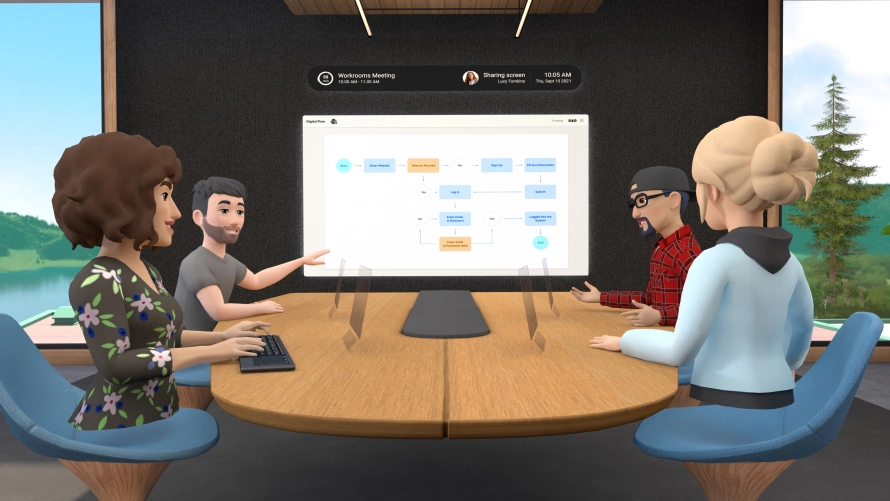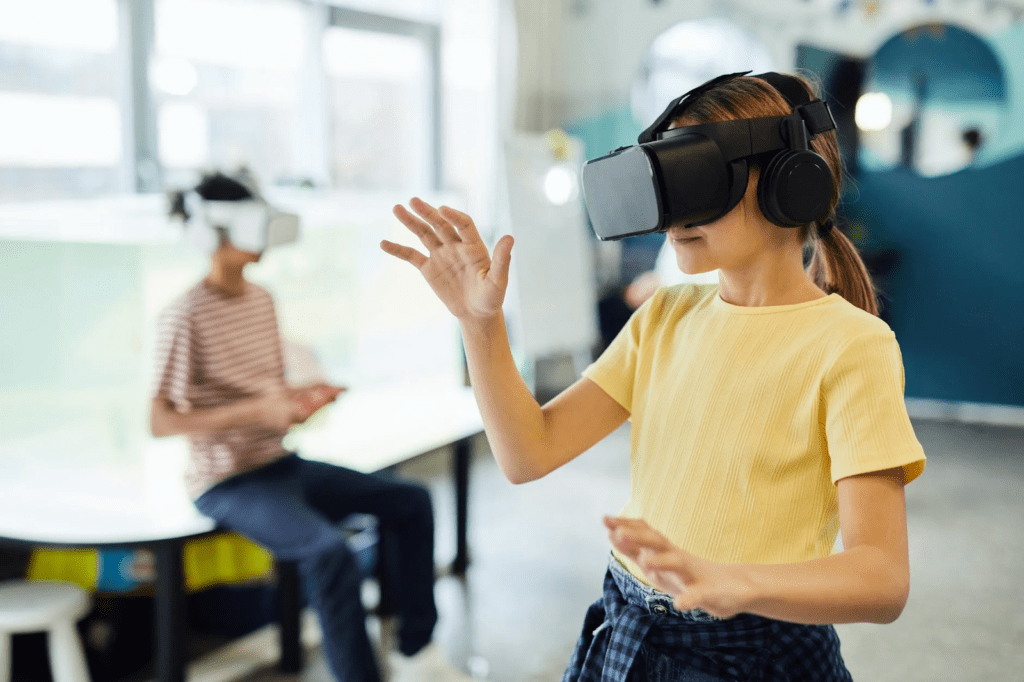If you haven’t heard already, Facebook is changing its name to ‘Meta’. A bold transformation announced by Mark Zuckerberg as Facebook aims to shift away from being just a social media platform and towards a ‘Metaverse’. As a result, the social network, Facebook, will no longer be the main priority Zuckerberg states, “We’re going to be Metaverse first, not Facebook first.”
So, what exactly does this mean? Although it sounds like a development in the Marvel universe, we can confirm that Facebook (currently) isn’t going into showbiz. This rebrand signifies a greater trend in the world of technology and is potentially one step closer to the future predicted in the Bruce Willis movie, Surrogates.
The internet has evolved significantly since its inception almost half a century ago. Gone are the days of listening to horrendous dialup tones and praying that your internet connection doesn’t drop out. In just a short time, we said hello and goodbye to floppy disks, CD-ROMS and USBs. Businesses such as Blockbuster dissolved, and new players such as Netflix arrived. We battled the LimeWire pirates as music streaming services such as Spotify broke ground, and the list goes on. All of this seems like a drop in the ocean compared to the Metaverse.

The keynote in this year’s Facebook Connect outlines their view for the future and where they see their place in a constantly evolving digital world. Zuckerberg has completely reimagined how we interact with the internet and digital products all together. In this new era, computer, phone, and TV screens are all considered hindrances that detract from the immersive experiences of the Metaverse. The Metaverse has been depicted as a virtual world that will become our primary form of interaction. You will have your own home environment and workspaces, which are designed to be a digital representation of the physical world. You will be able to travel to other people’s spaces and engage with them in virtual environments. These spaces can also be completely customised, with the only limit being your imagination. Zoom meetings will no longer be conducted on your laptop screen, instead you will jump into one of these virtual spaces (perhaps the International Space Station) and interact with your colleagues via hyper realistic avatars.
These avatars will allow us to express ourselves in new ways, with the idea being that the metaverse is a natural and vivid representation of life. Apps such as Facebook Messenger will also no longer be confined to phones and computers but will become extensions of us in the Metaverse. You will be able to answer calls on your virtual wristband, send messages and chat to people whilst still existing inside this virtual reality. Recorded videos will be fully immersive and video games will feel as if you’re standing right in amongst the action.
The Metaverse will redefine how we work, learn, play, shop and create. The possibilities are endless and open a whole new realm for creativity, business, and economy. From fitness to music concerts, travel and more, the Metaverse will seemingly transform everything as we know it, in this ‘next version of the internet’.
Many of the businesses that we physically interact with now may become virtual in the future. We have already witnessed businesses go completely online, with the Metaverse being the ‘logical next step’ in the progression of the internet. Who knows, one day we may visit virtual bank branches and interact with avatars, rather than physically driving to the nearest branch or ATM. Our trip to the Department of Transport, Medicare or Centrelink branches may be completely ‘Metaverseified’, as we sit in a virtual waiting room holding our virtual ticket number.
Facebook has already proven their power and importance in our lives, and with the Metaverse leading the way, consumers are likely to follow the growth of this universe.

With these exciting new developments, we also need to understand the risks involved. Meta is proposing building an entirely new world, and along with this comes a new set of complexities surrounding privacy, security, and our rights. Where does all of my Metaverse data go and who owns it? Can my Metaverse avatar identity be stolen? What impacts does this have on our mental and physical health? What technology requirements are needed, and is it sustainable?
Whilst we may not have all of the answers now, one thing is for sure: Virtual, mixed and augmented reality is here to stay, and is only going to play an increasingly prominent role in our lives as time goes on. A wave of new infrastructure, tools and products will become available as we inch towards our new eWorld (iWorld?). Businesses that don’t adapt (such as Blockbuster) and embrace the ‘new internet’ may fail, and consumers that don’t join the Metaverse may miss out…
Where will you find yourself and your business? Still on Facebook on your smartphone, or hosting meetings in the fires of Mount Doom via the Metaverse? We’re not sure which one is scarier…




